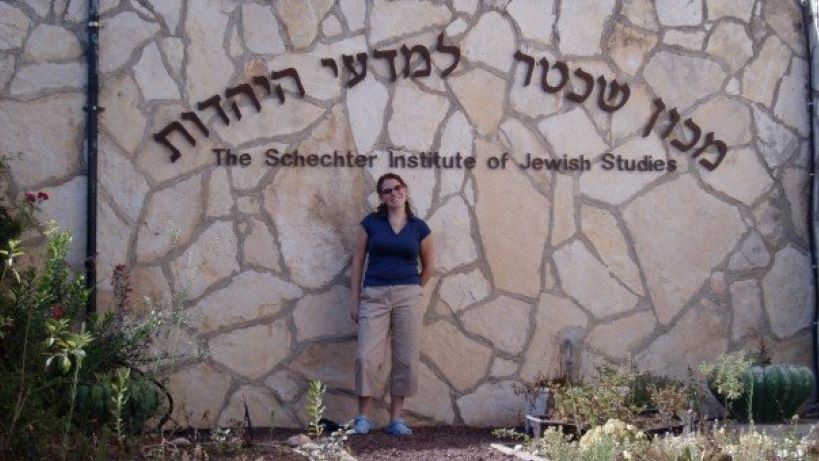In the wake of the horrific acts of terror this week, the unspeakable brutality against Israeli civilians, it’s hard to find adequate words to describe the overwhelming feeling of helplessness and powerlessness. For our sake, for our children’s sake, and for our community’s sake, it’s important that we find ways, even in dark times, to ground ourselves. If we’re to move forward at all, we must physically plant our feet on the ground, push them into the earth, and feel the earth pushing back. We cannot stand for what’s just and what’s right if we’re not first connected in some way to the ground beneath us.

I hope you’ve had a chance to reset, to notice your body and your breathing. This is something I’ve had to discover and relearn for myself. For so long, my balancing act was to go on a walk, to be in constant movement. I still consider this part of my self-care routine, but it’s the first step of being planted in my own body, feeling the pressure of the earth from my toes to my nose, that I was missing.
This practice, connecting to the earth, is one of the first mitzvot (commandments) that God gives to the people of Israel. This week we read Parshat Bereshit, the first portion of the Torah. We are wowed by the story of creation, specifically the time and care God put into creating each day, each being exactly as God wanted. We learn about the first people and their experience in the Garden of Eden: how they learned to build, grow, and be together. The Torah continues with the story of Cain and Abel, the first sibling rivalry gone terribly awry, and the very real consequences put into place after each of these events. At the very beginning of the Torah, we’re introduced to a concept that recurs throughout the text – God as the parent, creating life and making sure everything has its own place.
Adam, the first human placed in the Garden of Eden, is told what he can and cannot eat of the beautiful bounty, and in addition, the Torah also explains that his purpose there is to “till it and tend it.” Immediately, this suggests that if all of creation is connected through the acts that God took for creation, then humankind, in order to continue their connection to God, must also be a part of maintaining the land. In other words, God could have created a maintenance-free land, but then decided that in order to keep us grounded, we must fulfill the duties of caretakers of the earth.
I’m not suggesting that this type of labor is another post-Eden punishment. Did God want us to have to break our backs caring for the land? I don’t believe so. Instead, perhaps God wanted us to learn what it is to be connected to something from our “toes to our nose.” Perhaps being connected to the land gives us the opportunity to reset ourselves when needed, to literally dig in, and to recognize that we share this planet. May that be our hope for peace as we look to the days ahead.



